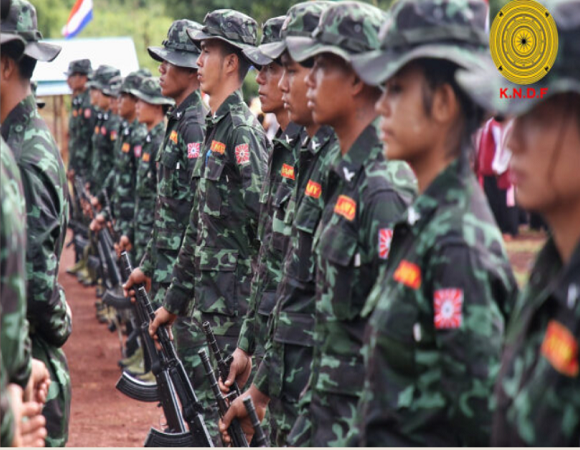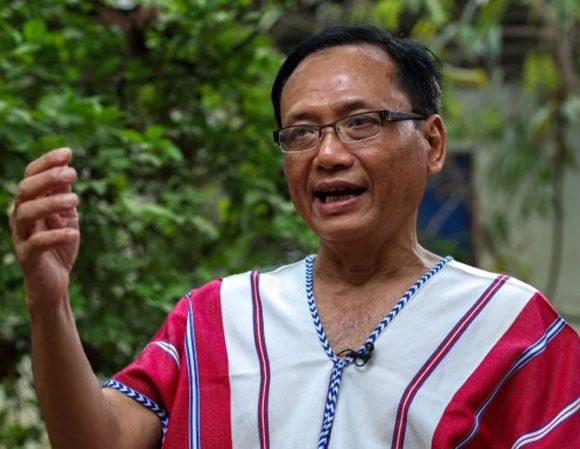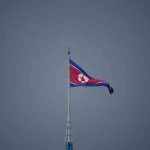Myanmar shadow government official apologises to Rohingya

NEWS DESK
In an interview with VOA, the humanitarian minister in Myanmar’s anti-junta shadow government has apologized for failing “to bring justice to the Rohingya in northern Rakhine State,” where Myanmar’s military launched a brutal crackdown in August 2017, VOA News reports.
Dr. Win Myat Aye served as social welfare minister in the administration of Myanmar’s since-ousted de facto leader Aung San Suu Kyi at the time of the crackdown, which was seen as a massive overreaction to attacks by Rohingya insurgents on government security posts.
The soldiers are accused of widespread atrocities including mass killings, sexual violence, and the burning of villages. Hundreds of thousands of Rohingya fled across the border into Bangladesh where they have spent years living in squalid refugee camps, still fearing to return.
“As the civilian government, we could not administer justice when this occurred,” Win said, referring to the 2017 operation to eradicate insurgents from among Rakhine’s Muslim-minority Rohingya people. “I feel sorrow when I consider all of this. We apologize for that. It is now evident why we could not administer justice then.”
Win’s apology marks a reversal from his public position in a 2017 BBC interview, when he defended the crackdown as a necessary response to terrorism and responded “yes” when asked whether it was the Rohingya themselves who burned their villages.
“In the villages where the terrorists can’t enter, there is no burning,” he said at that time. “When terrorists come in, it burns.” (( https://www.bbc.com/news/av/world-asia-41343887 ))
In his interview last month with VOA, Win said his administration had been misled by the military leaders behind the operation. “In the past, the military restricted access to accurate information … restricted my ability to communicate openly with Rohingya victims,” he said.
Reason for apology
During a July visit to the United States, Win told members of a Burmese community in Maryland that the Myanmar military is conducting the same kind of tactics again today, this time during what it calls “clearance operations” in the northwestern Sagaing Region.
Now, as in 2017, he said, the military is labeling an entire people as enemies based on the actions of a few.
“The Myanmar military attributed attacks on approximately 30 security outposts in northern Rakhine State on August 25, 2017, to [the Arakan Rohingya Salvation Army], laying the blame solely on ARSA for these events,” Win said.
“However, this incident led to the displacement of an enormous number of people, around 700,000, and the subsequent burning of numerous villages. A similar pattern seems to be unfolding in Sagaing Division,” he said. “Local villagers opposing the military coup are being targeted. The military has labeled them as [People’s Defense Forces] supporters, mirroring how they accused the Rohingya of collaborating with ARSA.
“The junta has used this flawed logic to justify targeting civilians in Sagaing, by claiming they are all combatants,” he said. “This is another example of how, from the military’s perspective, the people within the country are seen as enemies.”
Win’s account
Soon after the 2017 military operations began in northern Rakhine state, Aung San Suu Kyi dispatched Win to the area, where he saw security forces engage in what they called an anti-ARSA operation.
But upon arriving by helicopter, Win was shocked by what he saw. “We couldn’t land due to the raging flames rising from the burning fields everywhere we looked,” he said.
Asked why a high-level civilian minister was unable to confront the military’s actions — characterized by many as genocide — Win pointed to the country’s 2008 constitution, in which the long-ruling military ceded power to a civilian-led government but reserved substantial powers for itself.
“This constitution granted considerable influence to entities such as the Ministry of Defense, the Ministry of Home Affairs, and the Ministry of Border Affairs, significantly impacting Rakhine State, where these incidents occurred,” he said.
“The primary movement on the ground was orchestrated by individuals from the General Administration Department of the Ministry of Home Affairs, many of whom are former military members,” he said. “When the events transpired, they were under the direct command of the military and overseen by the security forces responsible for the region. Those who carried out these actions are the ones who are responsible for what happened.”
Rohingya reaction
Some Rohingya leaders, including Tun Khin, president of the Burmese Rohingya Organization U.K., have asked Win to testify before the International Court of Justice (ICJ), which is investigating allegations of genocide in Rakhine.
In a Zoom interview with VOA, Tun said he views Win’s comments as a positive step toward reconciliation.
“I welcome what Dr. Win Myat Aye said. This is a good sign for all of us as we move towards the Spring Revolution and a federal democratic system that includes all ethnic groups in the future,” he said. “His apology shows a sign of accountability and responsibility in Myanmar.”
Tun himself pursued legal action against Myanmar’s military in the Argentinian courts in 2019, alleging crimes against humanity during the 2017 crackdown. His case describes in detail gang rapes, beheadings and the slaughter of Rohingya civilians committed by Myanmar’s military, known as the Tatmadaw.
He said Win’s National Unity Government (NUG), comprising members of the ousted civilian administration and other elements of the anti-junta resistance, “should work together with the Rohingya community to bring an end to the history of negative propaganda about the Rohingya.”
Shwe Maung, a Rohingya lawmaker in the former government who now lives in the United States, told VOA that Win also formally apologized to the Rohingya community during a two-hour meeting in Houston, Texas.
“The minister said he went to Rakhine State around 96 times concerning the Rohingya issue,” said Maung via Zoom. “During that period, the ministries of home affairs, defense, and border affairs, controlled by the military, held sway and suppressed information. They had to work with them and, therefore, they were not able to do as much as they should have done.”
Maung quoted Win as saying, “I apologize to the Rohingya community.”
Maung added that the minister described how the NUG is engaging on this issue with international bodies such as the IJC and the International Criminal Court, both based in The Hague.
“Especially since they are the individuals responsible for making the cases before international courts … they have a lot of evidence,” he said. “At this time, they have to fight the common enemy — the military junta — and they have urged everyone to cooperate.”
Changing stance
In 2022, NUG officials issued a declaration to the ICC, accepting the court’s jurisdiction with respect to Myanmar, although the country is not itself a member of the court.
The NUG also withdrew preliminary objections to the ICJ’s jurisdiction on its genocide case. When the court started its hearing process in 2019, Aung San Suu Kyi traveled to The Hague to defend Myanmar against the genocide allegations.
The NUG recently appointed Rohingya activist and adviser Aung Kyaw Moe as its deputy human rights minister. Maung told VOA that while the community welcomed the appointment of a Rohingya leader as a deputy minister in the NUG interim government, laws must be passed to guarantee the rights of the Rohingya in Myanmar in the future.
“The NUG doesn’t consider these issues resolved, and neither do the Rohingya,” Maung emphasized. “This is precisely why we have asked the NUG to legislate Rohingya rights to prevent such injustices in the future.”

















